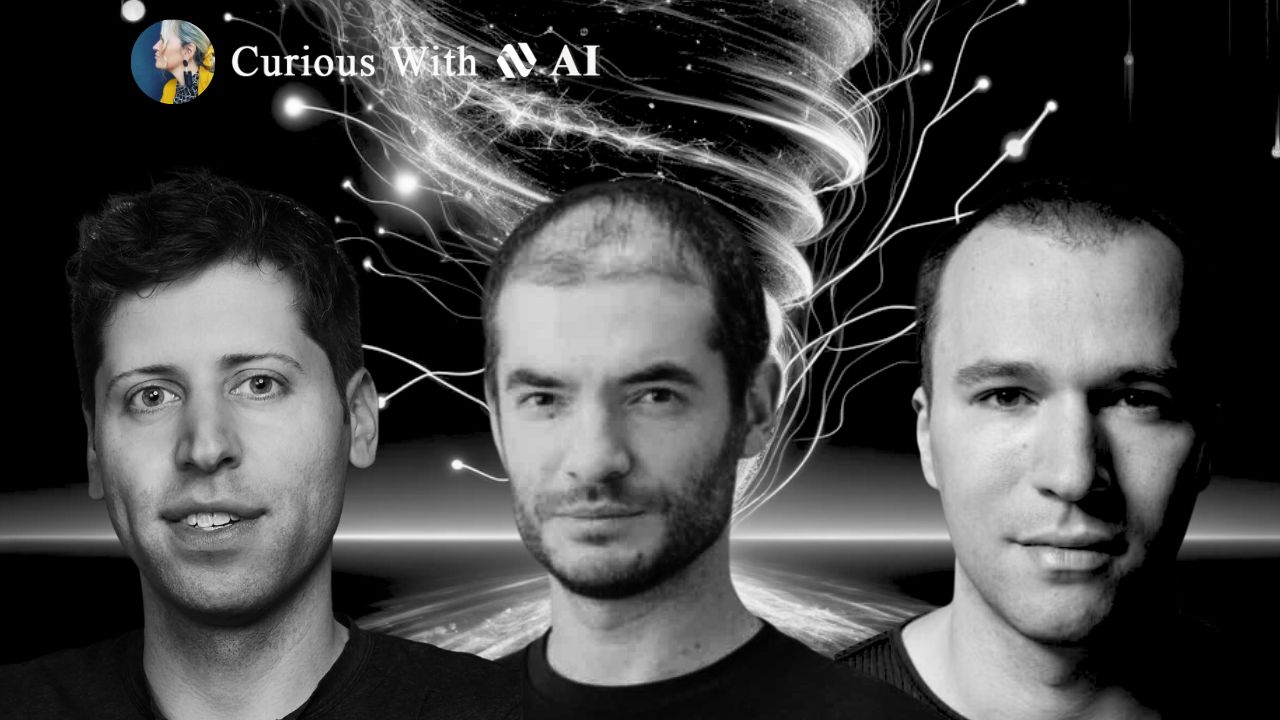
For those who missed the weekend’s happenings, here’s a detailed breakdown of the events and their implications for the future of AI.
Friday’s Bombshell In a surprising turn of events during a Google Meet call, OpenAI’s chief scientific officer Ilya Sutskever announced the board’s decision to terminate Sam Altman’s role as CEO, citing a lack of transparency in his dealings with them. This led to a domino effect, with the resignation of OpenAI president and co-founder Greg Brockman and several senior researchers. Mira Murati stepped in as interim CEO.
Saturday’s Tensions The drama continued as Murati tried to bring back Altman and Brockman, even as the board sought a new leader. Altman and OpenAI staff pushed back, setting an ultimatum for the board, which went unmet.
Sunday’s Shift to Microsoft Microsoft revealed its recruitment of Altman and Brockman for its AI research division. Shortly after, OpenAI announced Emmett Shear, ex-CEO of Twitch, as its new CEO.
Monday’s Employee Ultimatum Over 500 OpenAI staff threatened to resign and follow Altman to Microsoft unless the OpenAI board stepped down. In a surprising move, Sutskever also expressed regret for his role in the board’s decision.
The Future of OpenAI and AI Development The recent upheaval marks a significant shift from the OpenAI presented at its first DevDay. The departure of key figures like Altman and Brockman has triggered resignations and public declarations from remaining staff emphasizing the company’s reliance on its team. This upheaval could signify more changes before stability is achieved.
Sutskever and Altman’s long-standing differences over balancing product development and research advancements may have contributed to the recent events. New interim CEO Shear’s cautious approach towards AI development contrasts sharply with Altman’s, suggesting a potential slowdown in OpenAI’s product rollout.
This internal conflict mirrors the broader AI industry’s struggle between rapid innovation and the need for safety measures. It’s a tension that has led to the creation of AI safety-focused ventures like Anthropic.
Shear’s leadership might tilt OpenAI towards Sutskever’s project on superalignment, aiming to control future superintelligences.
Microsoft’s Gain in the AI Race Amidst this turmoil, Microsoft, led by CEO Satya Nadella, seems poised to benefit significantly. The potential influx of OpenAI talent, including Altman and Brockman, strengthens Microsoft’s position in AI, particularly in integrating AI into its range of products.
However, the future of Microsoft’s partnership with OpenAI remains uncertain, depending on the latter’s ability to maintain its edge in AI development.
Broader Implications for AI The industry is reeling from these unexpected developments, highlighting a growing divide over AI safety concerns. This year has seen a surge in deploying AI tools in various applications, but the industry’s direction may shift if the current pace of development slows.
AI Safety Concerns and Ethical Questions The safety of AI systems has also come under scrutiny. Recent incidents where AI models were manipulated to generate harmful content underscore the challenges of ensuring responsible AI use.
Meta’s AI Strategy and the Global AI Landscape Other developments include Meta reorganizing its responsible AI team to focus on generative AI and Google DeepMind’s efforts to define artificial general intelligence. Additionally, startups like Lelapa are addressing the gap in AI recognition of African languages, and Google DeepMind’s weather prediction AI shows promise in forecasting extreme weather events.
AI in Politics: A New Era? The recent Argentine election, where AI played a significant role in campaigning, suggests a new era in political use of AI. This raises questions about the authenticity and impact of AI-generated content in future elections.
Concluding Thoughts As the AI landscape continues to evolve rapidly, the recent events at OpenAI serve as a critical juncture, potentially reshaping the future of AI development and its application across various sectors.

Discover special offers, top stories, upcoming events, and more.

As an Amazon Associate I earn from qualifying purchases. Copyright © 2023 Curious With AI
